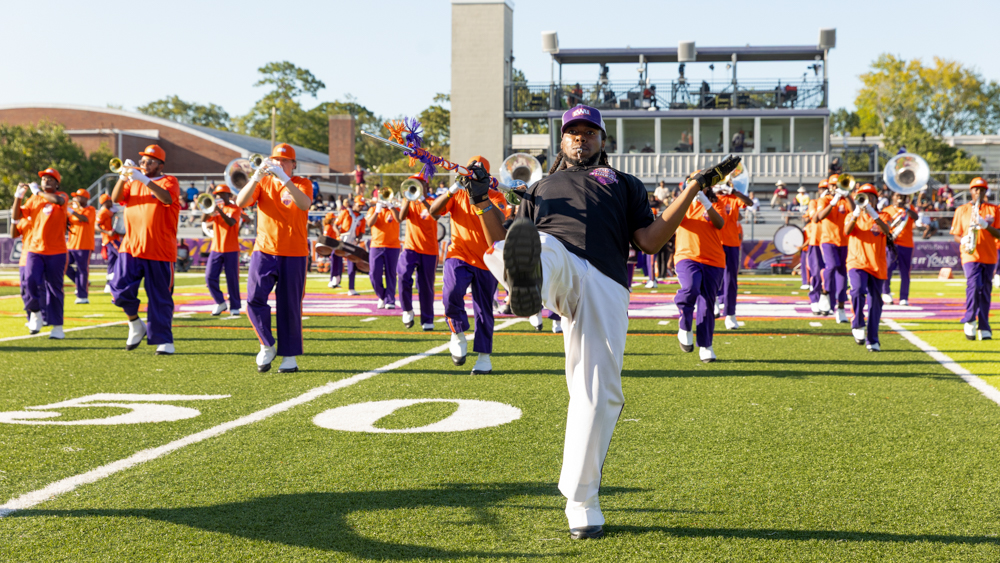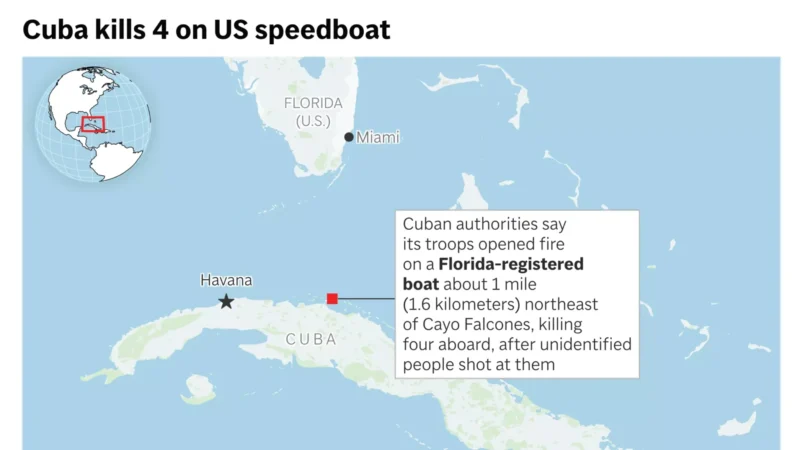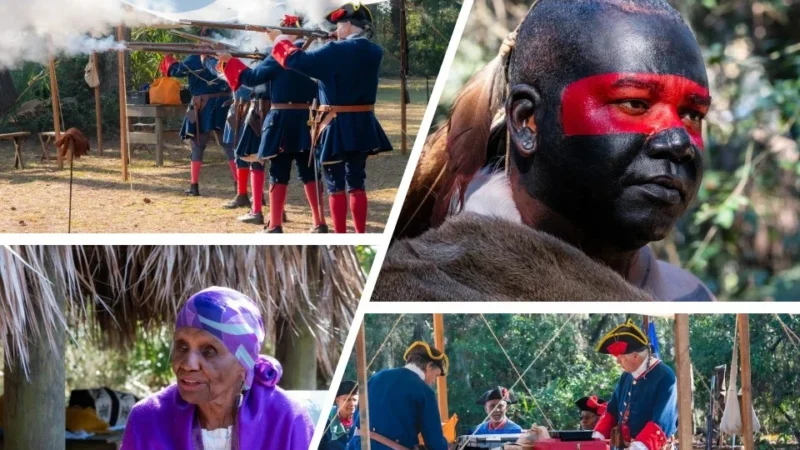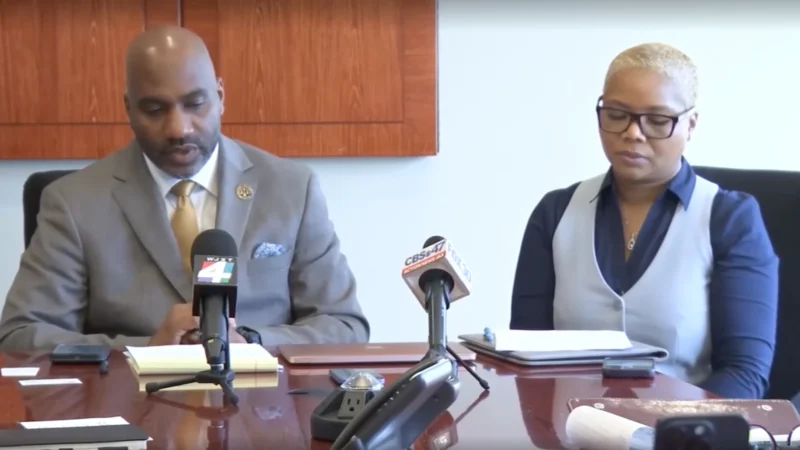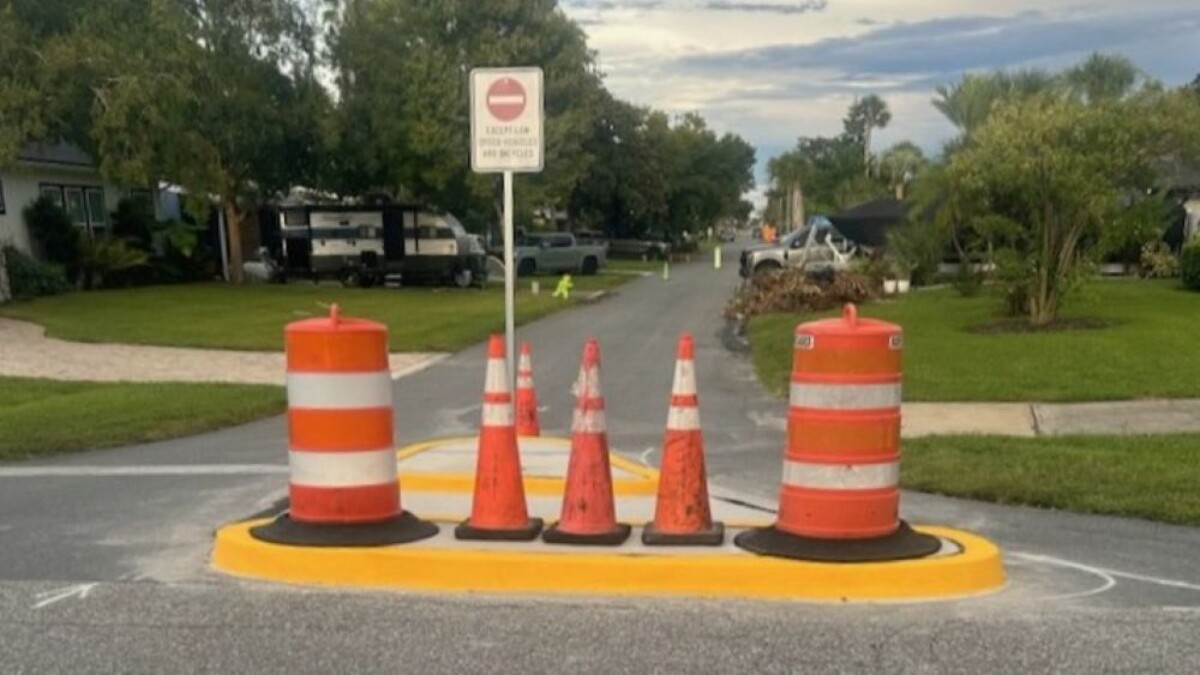Nelson McCoy is doing his part to ensure 21st century students have an opportunity to quench their a thirst for education like he once did.
Saturday, nearly two dozen historically Black universities will participate in the HBCU Legacy College Fair. Its goal is to provide Northeast Florida students with information about how they can enroll at a historically Black university.
The HBCU Legacy College Fair is from 10 a.m. until 2 p.m. at the Jessie Ball DuPont Center. There is no cost to attend, but students and guardians are asked to register.
McCoy encouraged students to bring their transcripts because some colleges in attendance will provide on-the-spot admissions.
For McCoy, this week’s events are part of his work as the executive director for The Center One Foundation. The Jacksonville-based nonprofit has helped more than 7,000 students identify a post-high school solution for their lives since its creation in 2013.
Center One created the HBCU college fair because its leaders realized that students had collegiate interest but were not fully aware of the admissions or scholarship application processes.
“College is not just about your classes,” McCoy says. “If you just want knowledge, you can go to the Downtown library and pick up books. College gives you an opportunity to experience something that you’ll never be able to do at another point in time in your life.”
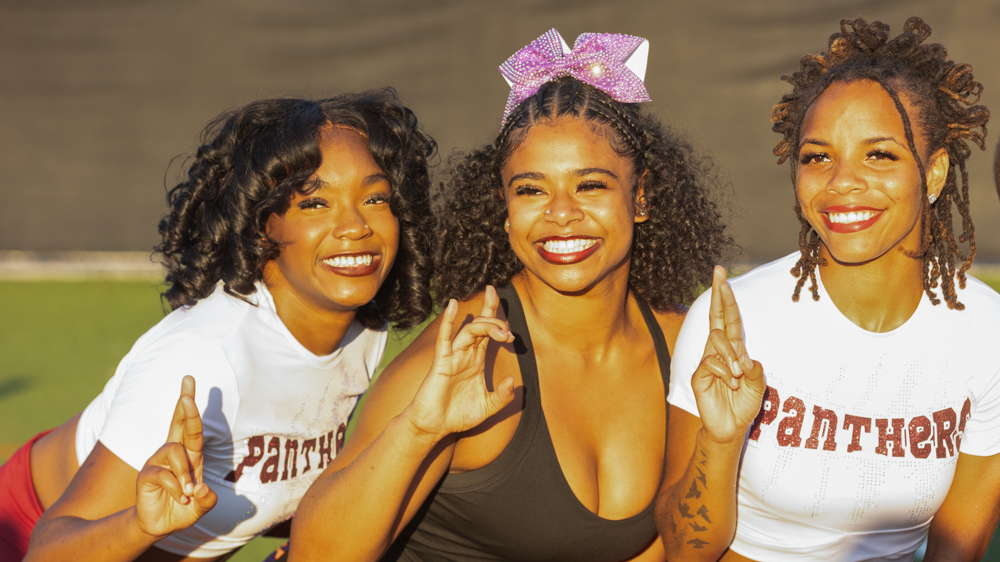
Shifting landscape in higher education
Center One’s HBCU Legacy week comes during a period when Black women are systemically being eliminated from the workforce; Black achievement has been minimized; Black intellectualism is under critique; and federal funding for historically Black universities is in flux.
On Monday, the U.S. Department of Education announced that it would provide $495 million in grants to HBCUs and Tribally Controlled Colleges and Universities on top of this year’s allocation. That news arrived five days after the federal Department of Education eliminated a $350 million grant program that would have strengthened predominantly Black institutions and provided universities with financial incentives for accepting racial minorities.
“The Department looks forward to working with Congress to reenvision these programs to support institutions that serve underprepared or under-resourced students without relying on race quotas and will continue fighting to ensure that students are judged as individuals, not prejudged by their membership of a racial group,” Education Secretary (and former pro wrestling magnate) Linda McMahon said in a statement.
Jacksonville’s Black college legacy
Political power dynamics may shift, but Jacksonville’s ties to historically Black universities are as wide and deep as the river that separates the city.
- One of Florida A&M’s founders, Jonathan Gibbs, represented Jacksonville in the Florida Legislature when the school was created Oct. 3, 1887.
- This year is the centennial of the merger between the school Mary McLeod Bethune founded, the Daytona Literary and Industrial Training School for Negro Girls, and the Jacksonville-based Cookman Institute. It’s now known as Bethune-Cookman University.
- Bethel Baptist Institutional Church’s pastor, the Rev. Matthew Gilbert, opened and operated a satellite campus of what is now known as Florida Memorial University in Jacksonville for more than 25 years in the early 20th century.
- Edward Waters University has been in Jacksonville’s Newtown community since 1904.
From a people perspective, James Weldon Johnson, Bob Hayes, A. Philip Randolph, Rutledge Pearson, Sallye B. Mathis and Mary Singleton all attended historically black colleges. So too did living legends such as Dr. Johnnetta Betsch Cole and Dr. Charles McIntosh.
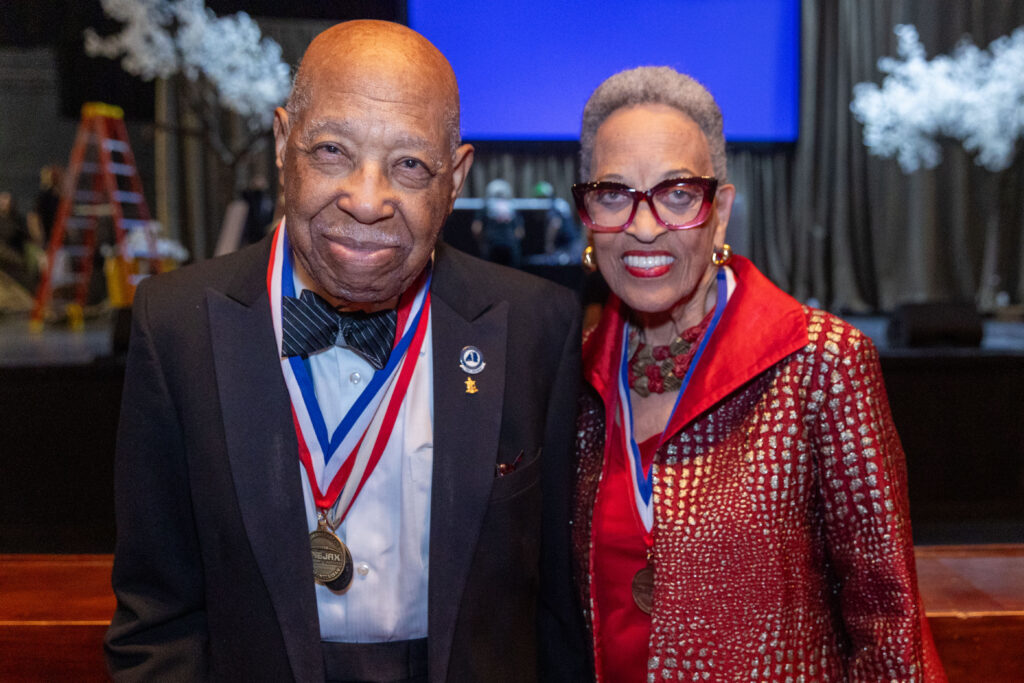
Today, HBCU alumni play outsized roles across sectors in Jacksonville.
There are Florida A&M and Jackson State alumni on the Jacksonville City Council, Edward Waters graduates who represent portions of Duval County in the Florida Legislature and judges with degrees from Clark Atlanta and Fisk. The region’s economic development corporation is helmed by a Clark Atlanta graduate. Meanwhile, there are scores of local educators and entrepreneurs who earned their degrees at historically Black universities.
“Jacksonville has been the seat of Black intellectualism and Black education in Florida for a very long time,” McCoy says. “I think that history is important so students can connect themselves. … In Jacksonville, that HBCU alumni network, the HBCU connection is strong. Students can take pride in that.”
Modern recruitment model
Angel Smith is a Miami native who wanted to savor the HBCU experience.
“I wanted to be part of something that is bigger than myself,” Smith says. “Edward Waters, being Florida’s first Historically Black College, I felt that it was the perfect start of stepping into my own culture and my own diversity.”
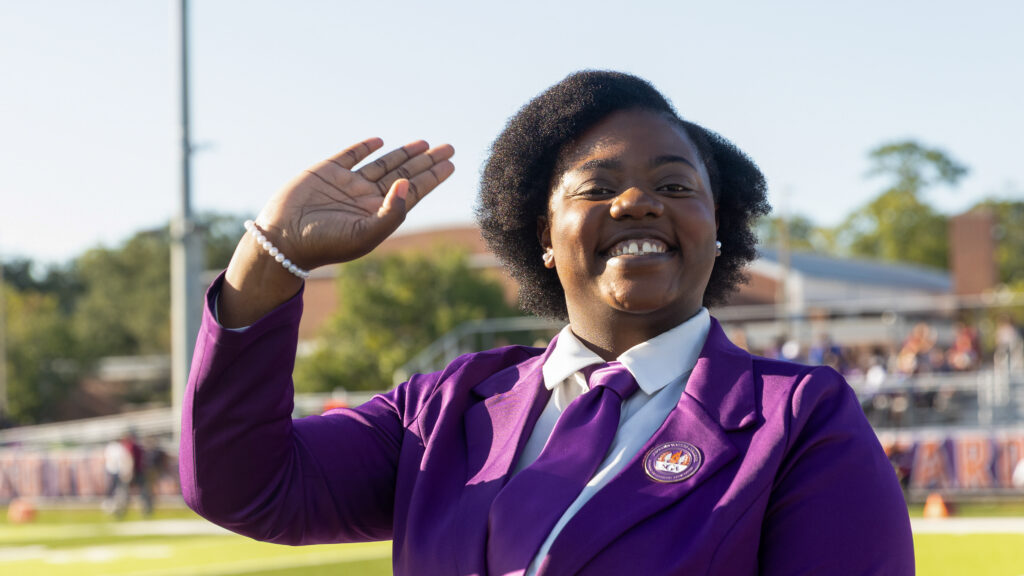
Smith serves as the student government president at Edward Waters.
The fast-growing campus has 1,210 students — its largest fall enrollment this century.
“The feeling of not being a minority. We have our whole after-collegiate years to be a minority. The feeling of (not being in the minority is a relief). Being educated by our own community, being accepted. It’s really a blessing.”
Smith says the opportunity to attend the National Association of Student Affairs Professionals Student Leadership Institute — or NASAP — inspired awe because she was in the presence of leaders who exhibit Black excellence.
A place to feel safe
The NASAP conference was on the campus of Clafin University. McCoy’s son is a student there.
McCoy says he has held conversations with Black parents about sending their children to a historically Black university to ensure their physical and emotional safety.
“It is truly a safety thing right now. If you are going to shut down a cultural center, if you are going to shut down a women’s center, you’re shutting down these things that were put in place for students to go in times where they feel like they need someone to talk to, where they need safety. … If you’re going to close those places down, then I can’t trust you.”
McCoy discussed student safety on HBCUs before several schools went on lockdown Sept. 11.
Southern, Alabama State, Hampton, Clark Atlanta and Bethune-Cookman were among the universities forced to take precautionary measures. Edward Waters did not face a threat, but the university announced last week that it would enhance security.
Edward Waters defeated Virginia Union 41-38 in front of 1,289 people in the inaugural Unity Classic on Saturday afternoon at Nathaniel P. Glover Community Field & Stadium. The contest was played without incident.
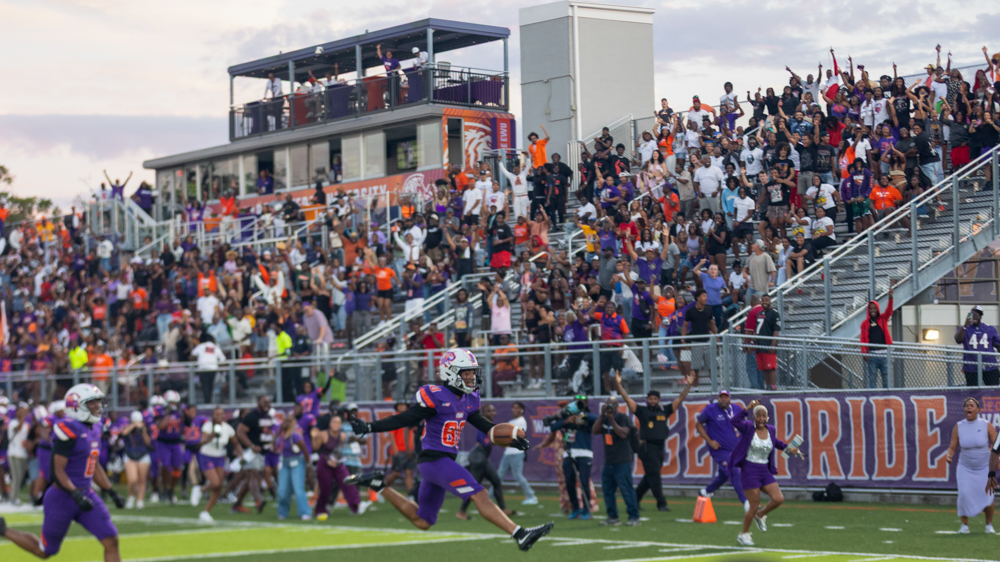
While no motive has been established for the spate of threats made at HBCUs across the country, Edward Waters University President A. Zachary Faison Jr. addressed the elephant in the room: during moments of uncertainty, Black people and Black spaces may be targets for hostility.
“In the face of such darkness, we choose light,” Faison said Sept. 12. “In the face of division, we choose unity. In the face of fear, we choose faith.”
Unity through education
Ahead of the Unity Classic, Faison said schools like Virginia Union and Edward Waters were partners in a mission to educate, lift the communities they serve and “remind this nation that HBCUs are not relics of the past, but engines of the future.”
A 2021 analysis from the United Negro College Fund concluded that HBCUs have an outsized impact on underserved communities and facilitate the upward mobility of a majority of their students.
Not every student who attends a historically Black uUniversity comes from poverty or an underserved community. Not every HBCU student lacks educational options.
Often, students choose HBCUs because phrases like “Enter to Learn. Depart to Serve”; “Mind and Hand”; “Excellence with Caring”; and “the place where everybody is somebody” are not solely words, but expectations.
Expectation of excellence
Joe Taylor has spent the past 45 years as a coach or administrator at historically Black universities. He views HBCU faculty members as jewels, because they set a standard of excellence.
“It’s growing now. But, they’ve always been necessary. They’ve always been valuable,” Taylor says of HBCUs. “I learned this when I was on the campus at Howard that we are … going to be pushed harder in your own setting because there is a realization that you almost have to be twice as good to survive. Just being average is not acceptable.”
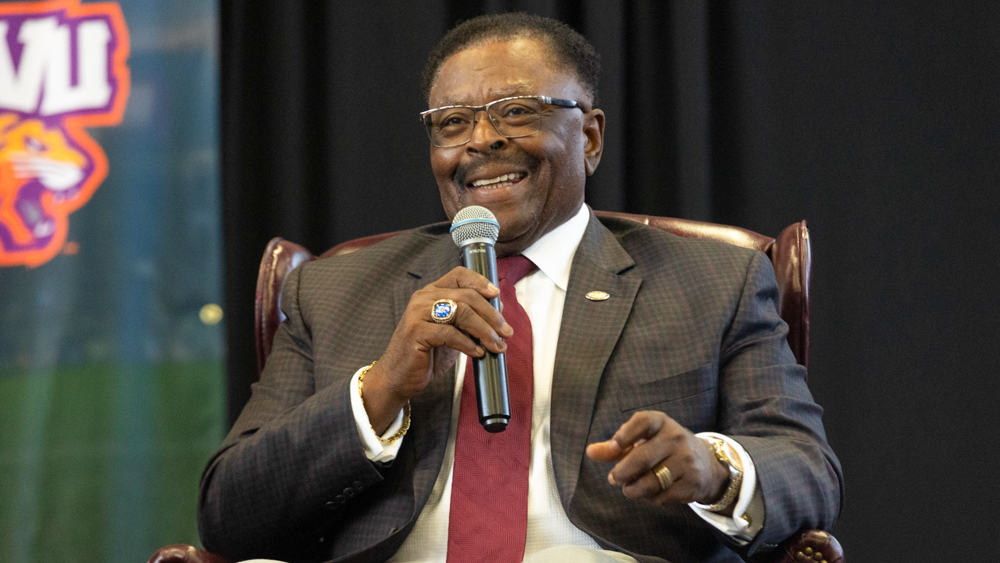
Taylor visited Jacksonville last week for the Unity Classic. The legendary coach at Hampton, Howard, Virginia Union and Florida A&M has a philosophy for why enrollment, across the board, is on the rise.
“You could probably look at the landscape of our country, the DEI issues. There is a divisiveness that’s going on,” Taylor said. “I’m sure that we are beginning to realize who we are and that we make a difference. We don’t need to be on a campus where we are not respected, we are not valued. To me, that could be why you see enrollments rising.”
The National Student Clearinghouse Research Center found HBCU enrollment increased 8.2% between 2020 and 2025. In the spring 2025 semester, 267,235 students were enrolled at historically Black universities.
Bethune-Cookman, Edward Waters, Howard and Grambling State are among the institutions that have witnessed enrollment gains and will be in attendance Saturday.
“One thing about the HBCU experience that it has taught me is that I am more than enough,” McCoy says. “I don’t need to apologize for who I am. When I step out into the public, I’m going to shine and be all of me, authentically me, and I don’t have to fake it.”



